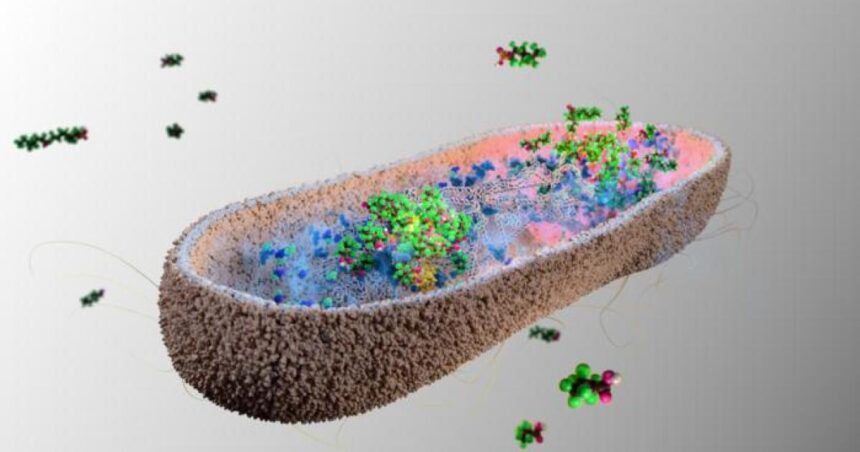A new study published in Nature Microbiology has reported a naturally occurring family of bacterial species in the human gut that can absorb and break down toxic, long-lasting “forever chemicals” and carry them out as waste through feces.
Per- and poly-fluoroalkyl substances (PFAS) are a group of synthetic chemicals that includes over 4,700 compounds. Their strong carbon-fluorine bonds grants an exceptional resistance to breakdown, allowing them to thrive in the environment and our bodies for extraordinarily long periods of time – hence their nickname, “forever chemicals.” PFAS exposure is considered carcinogenic and linked with health issues like decreased fertility and developmental delays in children.
These manufactured chemicals are everywhere, and their widespread use has already exceeded the safe planetary threshold limit. Used in everything from firefighting foams and waterproof clothing to nonstick kitchenware, PFAS contaminants have found their way into the human body through water and food.
While some environmental bacteria are known to isolate PFAS, the chemicals’ interaction with human gut bacteria has been unclear. To explore whether our gut microbes could help mop up these chemicals after entering the body, researchers at the University of Cambridge screened 38 potential candidates for their ability to soak up PFAS. To create a more human-like microbiome in the guts of mice, the team induced nine of these bacterial species through oral gavage. Using a similar oral dose, mice were exposed to PFAS chemicals.
Scientists found that within a few minutes of exposure to PFAS, the bacteria absorbed 25 to 74% of the chemical. These mopped up chemicals were then excreted through feces. The mice with PFAS-eating bacteria excreted more waste than the normal ones. More interestingly, the removal rate held steady even as PFAS doses increased. From the results of the study, amassing PFAS did not seem to hinder the growth of bacteria.
“We found that certain species of human gut bacteria have a remarkably high capacity to soak up PFAS from their environment at a range of concentrations, and store these in clumps inside their cells. Due to the aggregation of PFAS in these clumps, the bacteria themselves seem protected from the toxic effects,” says the senior author of the study, Dr Kiran Patil.
It is important to note that the chemical exposure in the research was done through a one-time oral dose, whereas human exposure typically occurs at much lower levels over longer periods of time. What this all means is that the researchers suspect it may be possible to develop a targeted probiotic designed to mop up PFAS in our guts before they can accumulate into toxic concentrations. The research team has co-founded a startup company called Cambiotics to explore this very possibility.
“We haven’t found a way to destroy PFAS, but our findings open the possibility of developing ways to get them out of our bodies where they do the most harm,” said the co author, Dr Indra Roux.
The study has been published in Nature Microbiology.
Source: University of Cambridge








